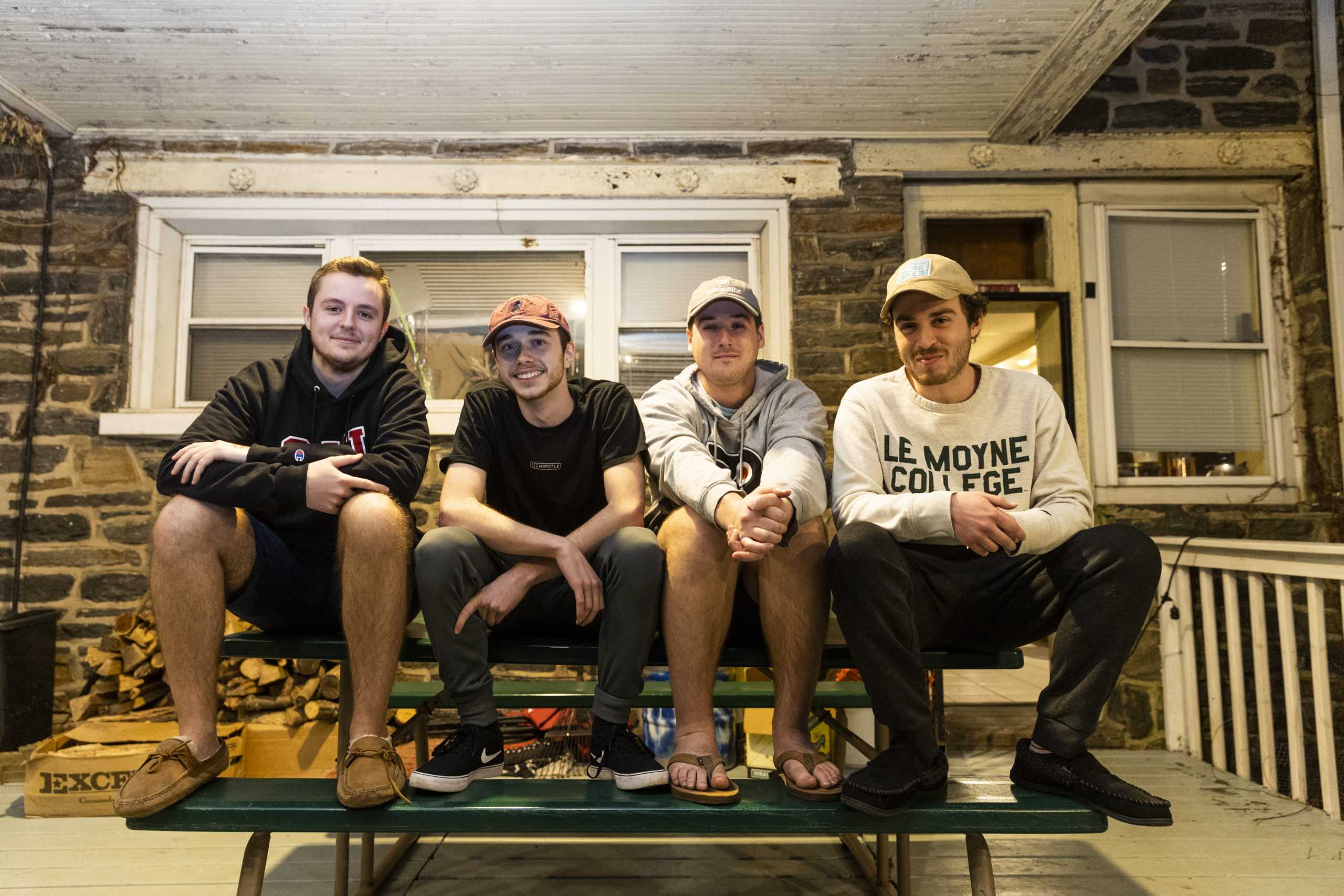There is a lot to admire about a good coach. Good coaches have an organized game plan and enter each of their competition seeking a win.
Good coaches connect with their team through the desire to see every member improve, motivating them to become better and bring their teammates up with them.
I have always admired, and been fascinated by, legendary basketball coaches like Gregg Popovich, Mike Krzyzewski and Phil Jackson. I wondered, though, if good coaching could be applied to other areas of life where leadership and motivation are needed, like in an off-campus house of college guys.
So, for one week last semester, I appointed myself as the coach of my house. Despite an immediately hesitant response from my roommates, I eventually coerced them into letting me help them rise to household greatness (a good sign of my coaching ability from the start).
Like any other newly established team, chemistry was at an all-time low in the beginning. Only practice could make this team thrive. I asked John Noonan, head basketball coach at Ursuline Academy in Wilmington, Delaware, what goes through his mind when he starts a brand new year with a brand new team.
“I think just getting started, there’s a level of excitement, just because it’s the season of the sport that you love,” Noonan said. “From a coaching standpoint, you’re looking for leaders and hopefully some surprises.”
For our first (and only) season, I decided to motivate my team to keep a cleaner house. To be honest, this goal was quite unpopular across all members of the squad. It became clear that I had to find a way to build excitement or motivation.
That’s what St. Joe’s men’s lacrosse Head Coach, Taylor Wray, said he does.
“We try to help our team members realize first that they have unlimited potential in their ability to learn new things and refine skills,” Wray said. “Once they realize this reality, it becomes a matter of motivation and hard work in achieving their goals.”
To motivate my team toward its goal, I set a specific challenge: By the end of the week I was determined to cut the time of our daily clean time down from 35 minutes to under 25 minutes. It was an ambitious goal but achievable if the right pieces were in the right places.
My first true challenge as a coach was justifying the movement of certain players to positions they didn’t like yet, but could excel at.
“Are you kidding me? Dish duty? I wield that Swiffer like Harry Potter!” my roommate Ethan Rambo ’23 complained after I swapped him and my roommate Mike Barker ’23.
After 36 hours, a star player arose. Jack Botto ’23 had locked down any and all responsibilities he had been assigned and had begun helping the others.
While it would have been tempting to focus all of my energies on Botto, Noonan said good coaches shouldn’t show favoritism toward the stars.
“I think we try to treat everybody the same,” Noonan said. “That third player, fourth player, fifth player, six player, whatever, we need to make them better so that the team can be more successful and can compete against better teams that have.”
I took a hard look at my middle group: Barker was by far the most detail oriented of the crew, looking for every spec of dust, while Rambo had a gift for speed. Now came the challenge of motivating the players to recognize that our performance as a household is higher when they occupy positions they may not have chosen for themselves.
My franchise player, Botto, had many pros, but one con became more evident with each day: his ego. He quickly made it known that he thought he would be a better coach than me.
While Botto was an MVP in our house, that doesn’t necessarily translate into good coaching. Challenges differ from coach to player.
Adrianna Hahn, a 2019 Villanova University grad and women’s basketball star, had to navigate the shift from player to coach when she founded Hahn Hoops, a company that offers basketball training camps and clinics. But in each case, as a player and as a coach, she said she let her passion for the game drive her.
“If I was going to coach and do this training business, it was going to be an elite experience, the same way that I did that as a player,” Hahn said. “Obviously, it’s about the kids. It’s for the kids, them getting better, them building relationships and becoming better people at the end of the day.”
As the week progressed and our clean-ing time decreased, the team began to click. Getting lost in the craft of a speedy cleanup became fun, bringing about a sense of community that brought clarity to the machine we had become. The common goal became more important than preferences on position or discrepancies with my coaching style.
Sometimes, connections between players and coaches can last a lifetime, tying people together for years after. My roommates and I are already planning to keep in touch after we graduate from St. Joe’s.
For Hahn, establishing those connections is a result of being an “advocate” for her players, on and off the course, especially when it comes to their mental health.
“My kids know that when they call me, I’ll pick up the phone, I’ll be there,” Hahn said. “I’ll give them the best, realest advice, even if they don’t want to hear it.”
And then there’s just not sweating the small stuff, like an imperfectly washed dish or forgotten dusty shelf.
That’s what St. Joe’s women’s tennis Head Coach, Ian Crookenden, tells his players.
“My primary reminder to the squad is we do not worry about things we cannot control,” Crookenden said.
After the week was over, it became clear it was the journey, not the accomplishment of the goal, that made coaching special. On the last day, we clocked in at 24 minutes and 43.7 seconds. But in my postseason reflection, it’s not the time that I dwell upon. I smile at the bickering and the laughs we shared and feel pride thinking about the milestone we achieved while learning from each other.
At the end of the day, it was the team that made this coach special.















































